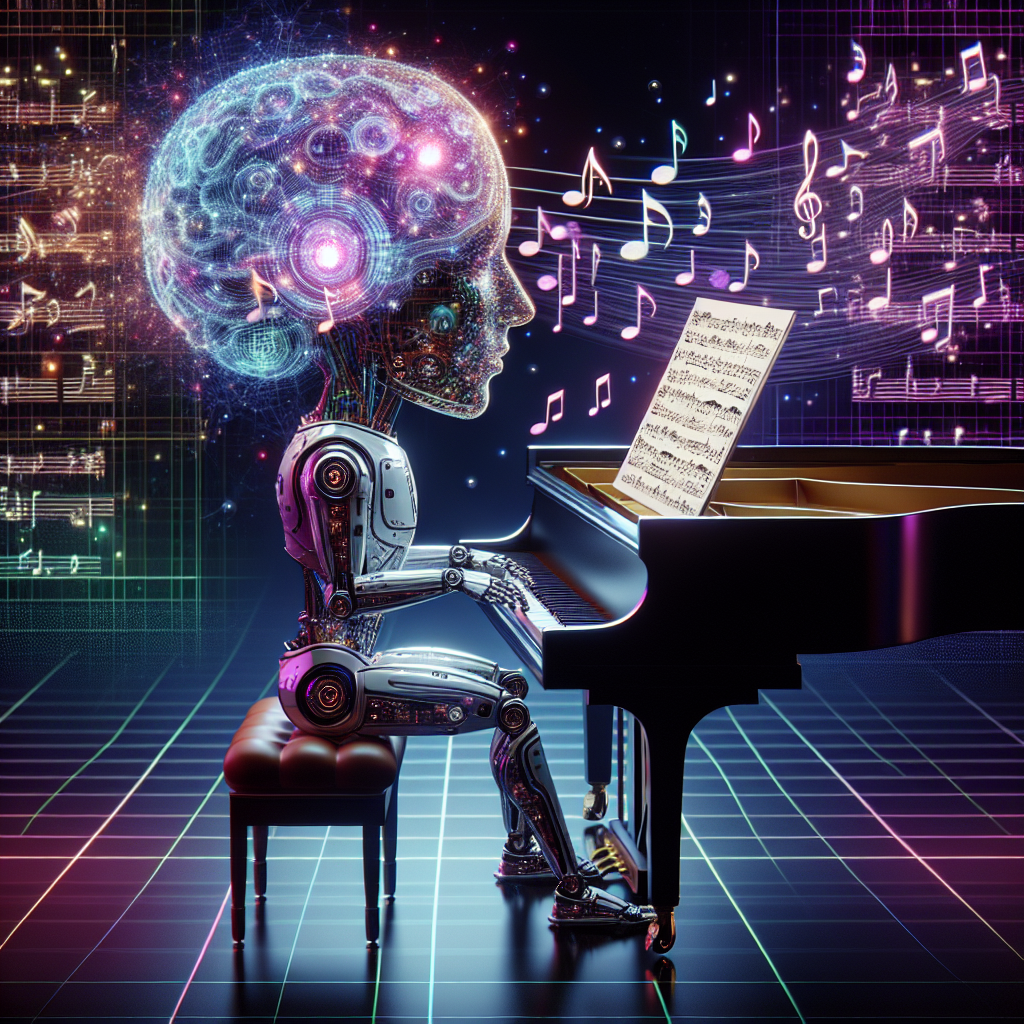Music has always been a reflection of human creativity and emotion, with composers using their talent and skill to create beautiful melodies and harmonies that touch the hearts of listeners. However, in recent years, Artificial Intelligence (AI) has emerged as a powerful tool in the world of music composition, offering new possibilities for creativity and innovation. The use of AI in music composition is not meant to replace human composers, but rather to enhance their abilities and push the boundaries of what is possible in the world of music.
AI in music composition works by using algorithms to analyze music data and generate new compositions based on patterns and structures found in existing music. This technology has the potential to create music that is both innovative and unique, while also allowing composers to explore new styles and genres that they may not have considered before.
One of the most exciting aspects of AI in music composition is its ability to collaborate with human composers, offering new ideas and inspiration that can spark new creative directions. By working together with AI, composers can explore new sounds, harmonies, and rhythms that they may not have thought of on their own, leading to a richer and more diverse music experience for listeners.
Another benefit of AI in music composition is its ability to analyze and process large amounts of musical data quickly and efficiently. This can help composers to generate ideas and compositions faster, allowing them to experiment and iterate more quickly than ever before. AI can also help composers to overcome creative blocks and find new ways to approach their music, leading to more innovative and engaging compositions.
AI in music composition is already being used by musicians and composers around the world to create new and exciting music. For example, the AI music platform Amper Music allows users to generate custom music tracks in a variety of styles and genres, while the AI music composition software Aiva is used by composers to create orchestral music for films, commercials, and other projects. These tools are just the beginning of what AI can offer to the world of music composition, and as the technology continues to advance, we can expect to see even more exciting developments in the future.
However, while the potential of AI in music composition is vast, there are also some challenges and concerns that need to be addressed. One of the main concerns is the issue of copyright and ownership of AI-generated music. As AI becomes more sophisticated and capable of creating music that is indistinguishable from human compositions, questions arise about who owns the rights to this music and how it should be credited and compensated. This is a complex issue that will need to be addressed as AI in music composition becomes more widespread.
Another concern is the potential for AI to homogenize music and create a “one-size-fits-all” approach to composition. While AI can generate music that is technically proficient and well-structured, there is a risk that it may lack the emotional depth and creativity that human composers bring to their music. It is important for composers to use AI as a tool to enhance their creativity, rather than relying on it as a crutch that limits their artistic expression.
Despite these challenges, the creative potential of AI in music composition is vast and exciting. By embracing this technology and using it in collaboration with human composers, we can unlock new possibilities and push the boundaries of what is possible in the world of music. AI has the potential to revolutionize the way we create and experience music, offering new opportunities for innovation and creativity that were once unimaginable.
FAQs:
Q: Can AI really create music that is as good as human composers?
A: While AI can create music that is technically proficient and well-structured, it may lack the emotional depth and creativity that human composers bring to their music. AI can be a powerful tool for composers to enhance their creativity, but it should be used in collaboration with human composers to achieve the best results.
Q: How can composers use AI in their music composition?
A: Composers can use AI to generate new ideas and inspiration, analyze musical data, and experiment with new sounds and styles. AI can help composers to overcome creative blocks and find new ways to approach their music, leading to more innovative and engaging compositions.
Q: What are some examples of AI in music composition?
A: Some examples of AI in music composition include the AI music platform Amper Music, which allows users to generate custom music tracks in a variety of styles and genres, and the AI music composition software Aiva, which is used by composers to create orchestral music for films, commercials, and other projects.
Q: What are some of the challenges of using AI in music composition?
A: Some of the challenges of using AI in music composition include concerns about copyright and ownership of AI-generated music, as well as the risk of AI homogenizing music and creating a “one-size-fits-all” approach to composition. It is important for composers to use AI as a tool to enhance their creativity, rather than relying on it as a crutch that limits their artistic expression.

